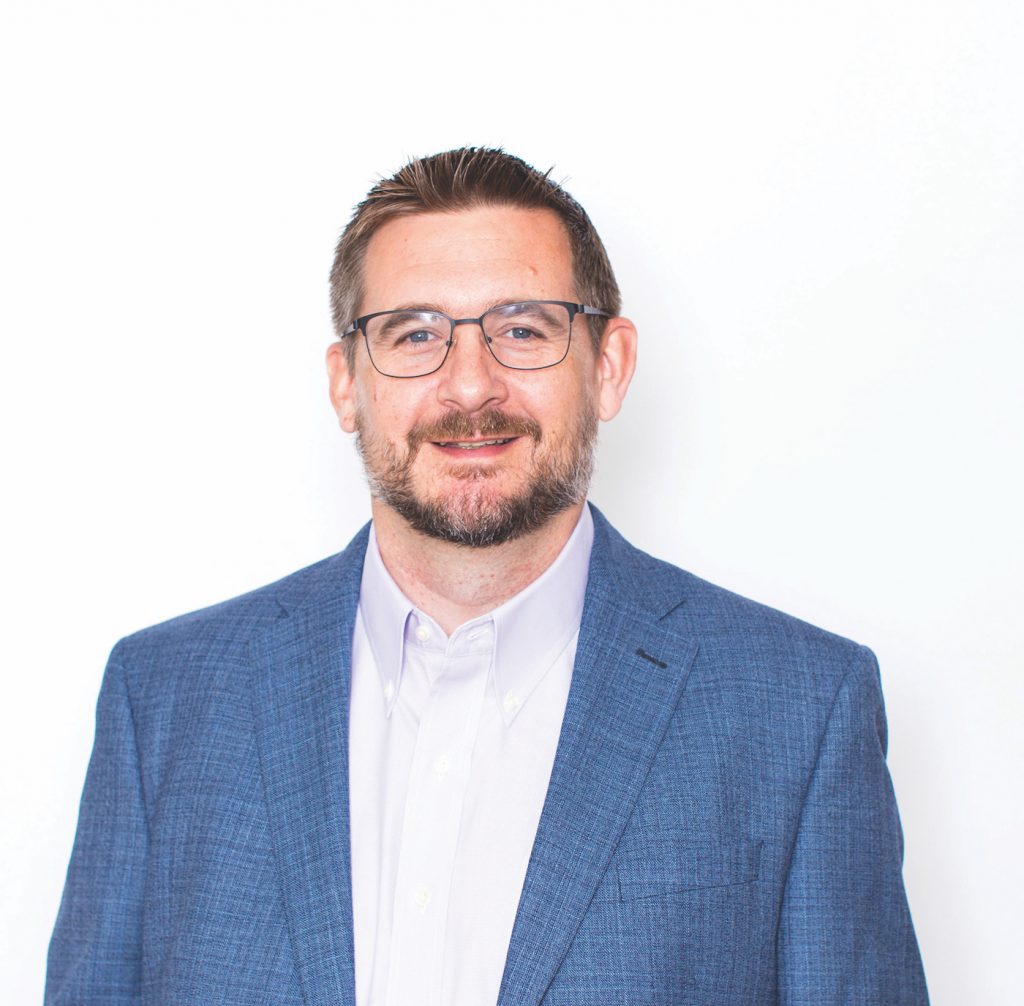Philanthropy is a Family Business

Charlie Casey inherited the family business, Pacific Foundation Services (PFS), and turned it into a philanthropic juggernaut.
After graduating from business school at Vanderbilt University in 2003, Casey assumed his career would be a corporate job in brand management for consumer products. But then, life took a twist.
“My dad basically said, ‘Well, if you don’t want me to sell this business to a third party, then one of you has to take it over,’” Casey remembers his father saying. His brother is a teacher in New York and wasn’t interested. “I happened to be the one,” he says. “I kind of fell into it at first, but have found great joy in helping other families realize their philanthropic visions.”
Charlie Casey might not have noticed it, but he was clearly destined for philanthropy. He is, in fact, a fifth-generation descendent of Henry Bothin, who started the Bothin Foundation in 1917, which Casey’s father also used to run.
So, Casey was no slouch when he took on the role of PFS president in 2006. He grew the company from six staff and seven clients to a team of 40 that today serves roughly 40 foundations ranging from $10 million to over $1 billion in assets.
In a conversation with The Giving List, Casey discusses how the business grew to where it is today and why philanthropy is more important now than it’s ever been.
What exactly does Pacific Foundation Services do?
We collaborate with our clients to determine what services best meet their needs, which, of course, might change over time. We provide administrative governance, compliance, accounting, grants, management, etc. – essentially a complete back-office solution for private foundations. We also work closely with client foundations to provide programmatic support, philanthropic advice, and strategy – helping connect their values to their grantmaking and connect to strong nonprofit partners.
How have you grown the business? What was your strategy?
The reality is that we provide a very specialty service. People often seek us out. Our growth has been almost entirely word of mouth. We don’t do any direct outreach today. My focus has always been internal, hiring great people, investing in infrastructure and systems, and building a strong, enduring corporate culture. Cheesy as it sounds, if you build it, they will come. I’m really proud of the reputation we’ve built and think that has played a big part in our growth.
How do foundations find you?
We benefit greatly by being able to list some of the foundations we work with on our website.
Unlike a wealth management firm, as an example, we link directly to many of our client websites, primarily as a service to the nonprofit sector to get information out about the grantmaking process for our clients. But when somebody has a private foundation and needs assistance, just by going to our website, they see this list of other foundations that we work with. That gives us this baked-in credibility, which we work hard to protect and keep credible.
What’s your proudest accomplishment?
Building the culture that we have at PFS. Having worked at a number of different corporations and work environments, I was really clear about what I didn’t want. I own the business, but I also go to work every day at PFS. I set clear intentions for what I wanted in terms of a work environment for myself and for my colleagues.
PFS is a business based on trust and generosity. We’re very much a values-driven organization.
“When we had the cascading crises of the pandemic, and then the George Floyd murder and the ensuing civil unrest, and the insurrection at the Capitol, we asked our clients to step up in a meaningful way. We had a call to action with our clients. There’s a huge need right now, across the nonprofit sector, in supporting core grantees so that they can keep their people employed at food banks, housing, homeless services – really across the board.”
How has philanthropy fared through the pandemic and the rising calls for equity?
Our clients by and large self-select to work with us because they want to do a very good job, they want to do something more than support only their alma mater or their kids’ schools or the local art museum. They really want to make a difference.
So, when we had the cascading crises of the pandemic, and then the George Floyd murder and the ensuing civil unrest, and the insurrection at the Capitol, we asked our clients to step up in a meaningful way. We had a call to action with our clients. There’s a huge need right now, across the nonprofit sector, in supporting core grantees so that they can keep their people employed at food banks, housing, homeless services – really across the board.
And I was really inspired by how much they stepped up. I mean, our payout across our client foundations went way, way up, right when the nonprofit community needed and society needed us the most.
How has 2020 and 2021 changed giving?
In addition to giving more money, there was a lot of loosening of restrictions and giving practices. Because the pandemic pushed us all into a remote work environment, foundations reduced the burden put on grantees around what a proposal or report needed to look like.
We saw a real rise among our portfolio, and the sector more broadly, in trust-based philanthropy. Rather than funding a particular program within an organization, many of our clients increased unrestricted giving, asking grantees, “What money do you need? How do you need it? And how can we get it to you?” And really trusting them to deploy those assets in the way best suited to their organizations and communities. Foundations are famous for burdensome levels of requirements around every philanthropic dollar and requiring reports on how every dollar was spent. It has been refreshing to see a number of funders embrace trust-based philanthropy.
What’s the hardest part of the work you do?
Even though foundations are by definition resource-rich organizations and our clients, by and large, all have very large endowments, they still have grantmaking budgets and priorities, and therefore sometimes we have to say “no” more than we can say “yes” to prospective grantees. That’s hard. Our aim is to do it in a way that is dignified, empathetic, and kind. I would say my personal mantra is that private foundations should do no harm.
If you could work any job besides the one you have, what would it be?
I’d be a writer. I was an English major in college, and I love to write, but I don’t have a lot of opportunities other than internal and external communications. Even so, I enjoy crafting those communications. I’m much more articulate in writing. I don’t like giving speeches, even to my team. I shy away from that. But I’m happy to write about what I feel. I’m a little bit of a social introvert.
You’re born and raised in San Francisco; what was your first job?
Taking photographs of tourists getting on to bay cruises at Pier 39 and then trying to sell them the pictures when they got off the boat.
